Mummy Stash Found in Italian Church
Rossella Lorenzi
Source - http://news.discovery.com/history/mummy-discovery-italian-church-110628.html
Hundreds of bodies stacked one of top of the other emerged during restoration work in the church of Roccapelago, a remote mountain village in north-central Italy.
About one-third of the mass grave, consisting of 281 bodies of adults, infants and children, turned out to be mummies.
"We found about 100 mummies. We can say that an entire community, who lived here from the mid-16th to the 18th centuries, has been naturally mummified. This is quite unique," Donato Labate and colleagues from the Archaeological Superintendency of Emilia Romagna said.
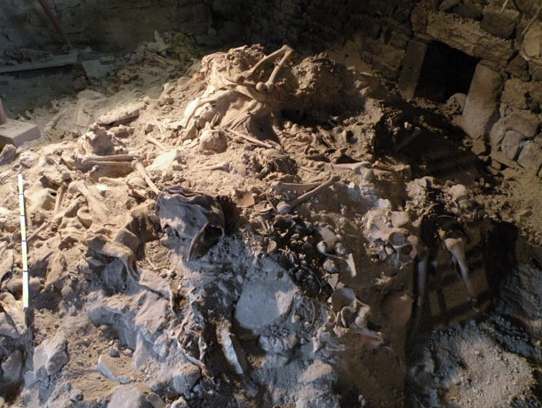
Barbara Vernia/SBAER
Found in the crypt of the church, the mummies have hands clasped in prayer and feature intact skin, tendons, and hair. The bodies were unearthed fully dressed with tunics, thick socks and caps.
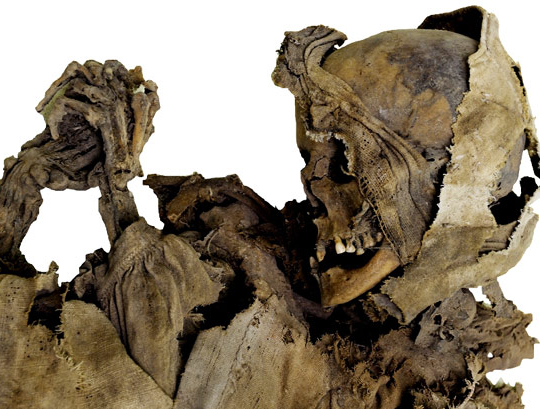
Paolo Terzi /SBAER
According to Iolanda Silvestri and Marta Cuoghi Costantini, ancient textile experts of the Institute for Cultural and Artistic Heritage of Emilia-Romagna, the clothes reveal a simple lifestyle. "Forget silk or elaborate embroidery, these people were dressed for the mountains," the researchers said. Made from wool, linen and cotton of different thickness,the clothes often featured simple laces with geometrical patterns at the wrists and neck.
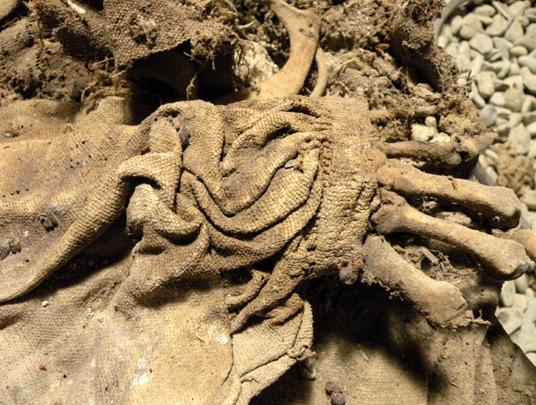
Paolo Terzi /SBAER
The mummified bodies were accompanied by various personal items such as rings, necklaces, religious medallions and crucifixes in various materials -- gold, silver, wood, stone and glass. The archaeologists also found some mummified mice, which probably died because of the toxic miasma generated by the mass burial.
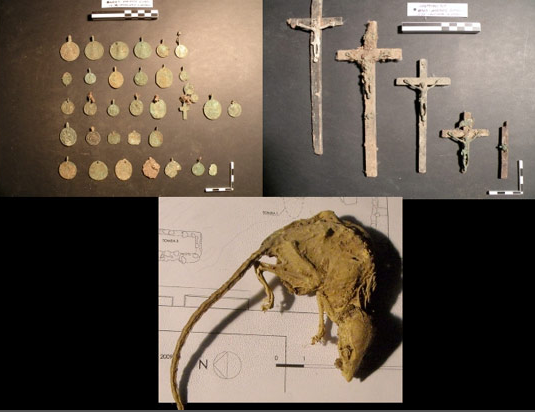
SBAER
The archaeologists also unearthed a well preserved letter. Known as "lettera componenda," it was supposed to serve as a sort of an agreement between God and the deceased. In the letter, the dead person asks for five pardons in exchange of prayers. The letter was found buried within the crypt and had probably been placed over one of the bodies.
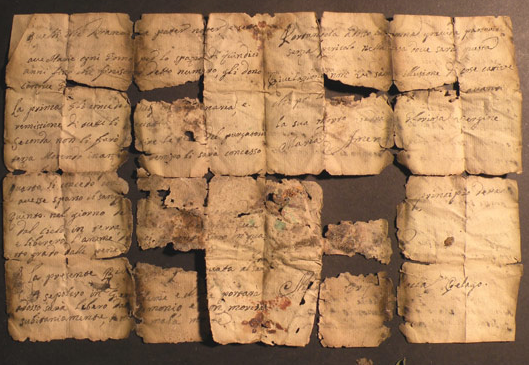
Barbara Vernia/SBAER
PART.2